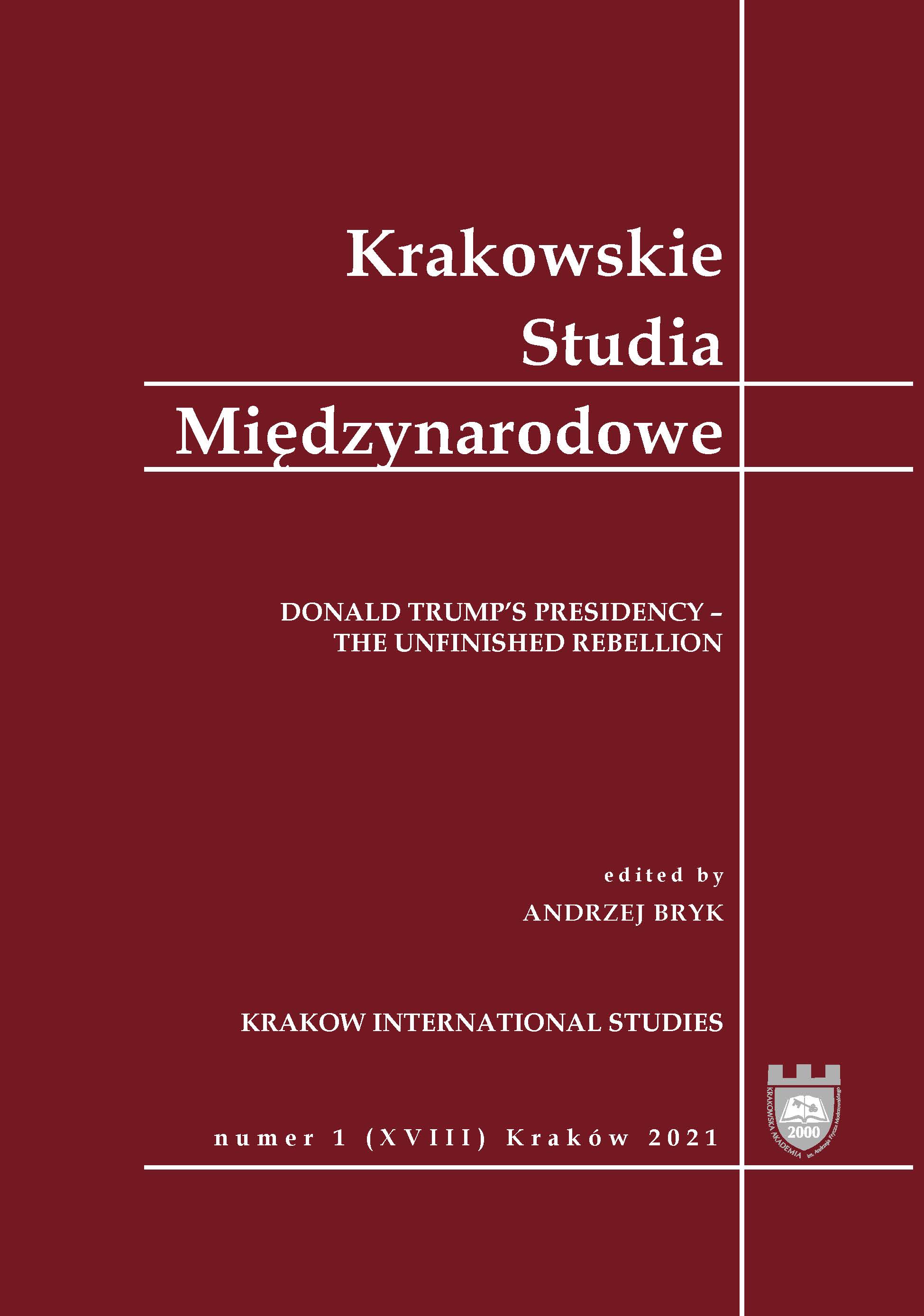Donald Trump and America Divided against Itself
Donald Trump and America Divided against Itself
Author(s): Andrzej BrykSubject(s): Politics / Political Sciences, Politics, Law, Constitution, Jurisprudence, Government/Political systems
Published by: Oficyna Wydawnicza AFM Uniwersytetu Andrzeja Frycza Modrzewskiego w Krakowie
Keywords: Donald Trump’s Presidency; American Conservatism; liberal oligarchy; populism; identity liberalism; fragmentation of American socjety;
Summary/Abstract: Donald Trump became the president of the United States because he was able to see the deep division of the American society into 80% of the population comprising the lower and middle classes and the caste-like oligarchic elite, which is made up of the richest 1% and 19% of the upper-middle class population. These 20% justifies its privileged social position by referring to meritocracy, the ideology of identity liberalism and to globalism, delegitimizing any opposition as a manifestation of ignorance, pathological aggression or social maladjustment (“the deplorables” of Hillary Clinton). Trump turned to the remaining 80% of society, angered not only by the effects of globalization implemented by the liberal elites as the only possible and rational economic policy, but also despised by the liberal upper middle class and forced by political elites to submit to the dictates of the ideology of emancipatory liberalism of personal autocreation, leading to the breakdown of social and family ties and the destruction of authorities. Trump won the support of angry voters because he raised issues that were very close to much of the electorate but were absent from the dominant discourse of political elites, both in the Democratic Party and the Republicans. This was his “populism”, which was in fact democratic and conservative patriotism or mild nationalism. Nevertheless, this provoked vehement opposition from both the liberal left, part of the federal administration (“deep state”) and cancel culture, and from some republicans (“Never Trumpers”). However, the “resistance movement” that emerged after Trump’s election was able to appeal only to ideological arguments, including the perception of America’s and the West’s civilizational heritage as a structure of immanent oppression that Trump wants to renew and strengthen. Thus, a narrative was born presenting Trump as a usurper in a metaphysical sense, an enemy of the only legitimate moral and social order, i.e., the order of identity liberalism with its axioms of emancipation and moral autocreation of individuals. The violation of this quasi-religious order is to cause an escalation of violence and oppression motivated by hatred, racism, xenophobia and religious fanaticism. Such a narrative, referring to the theory of the “end of history” by Francis Fukuyama, was not confirmed either in the politics or in the legislation of the Trump administration, demonstrating flaws in the liberal-left understanding of the so called “populism”.
Journal: Krakowskie Studia Międzynarodowe
- Issue Year: XVIII/2021
- Issue No: 1
- Page Range: 47-84
- Page Count: 38
- Language: English

